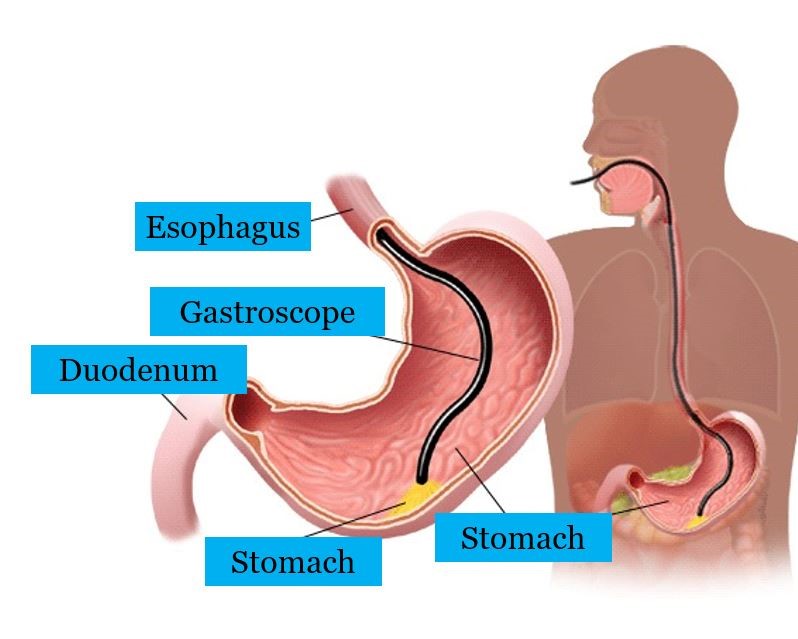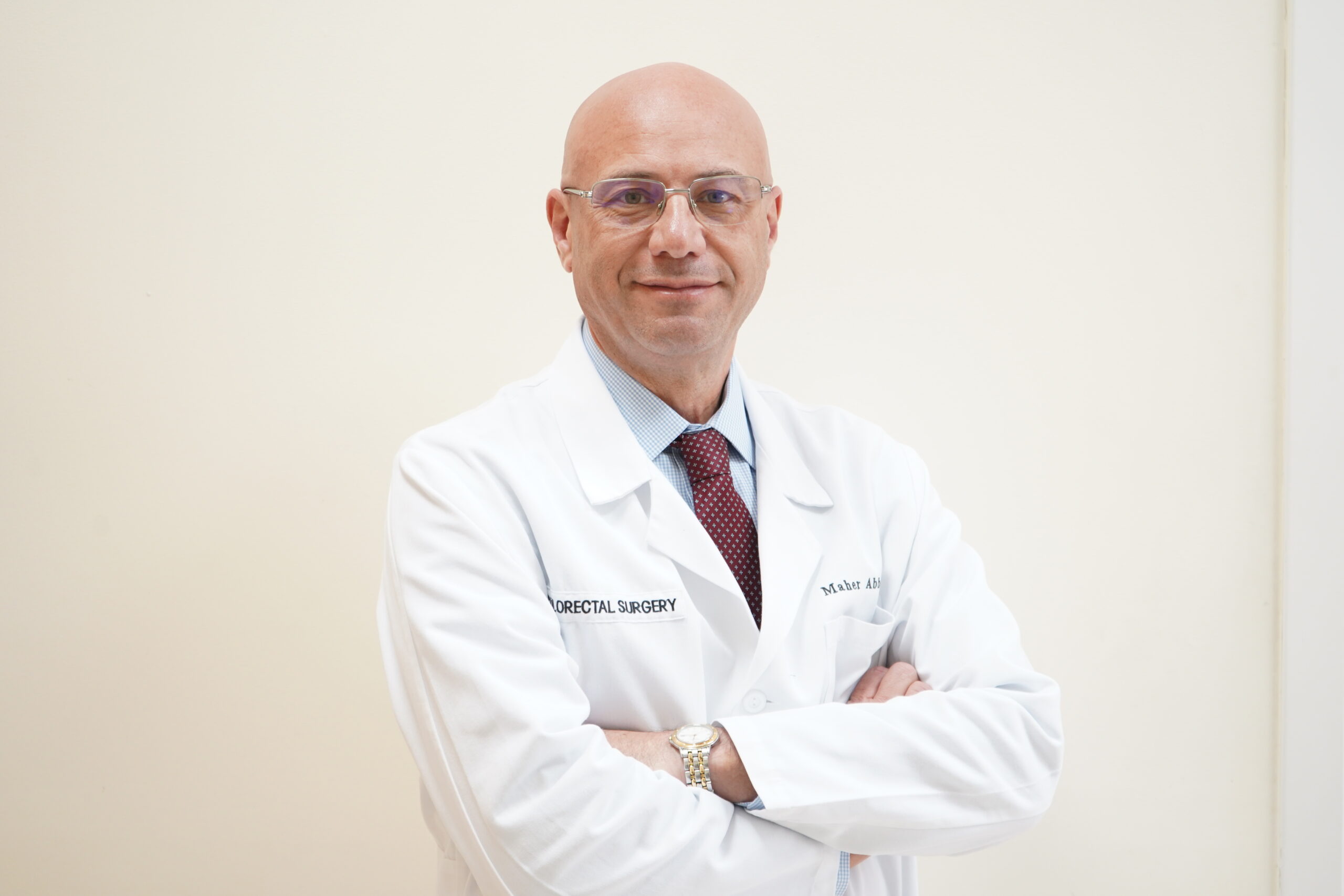What is gastroscopy?
Gastroscopy (Upper Endoscopy) examines the esophagus, the stomach, and the first part of the small intestine (duodenum) [Figure 1]. A thin flexible tube (with a tiny video camera at the tip) is inserted through the mouth and advanced to the duodenum [Figure 2]. If needed, a small amount of tissue (biopsy) is obtained during the procedure. The biopsy is analyzed by a pathologist (a laboratory doctor using specialized microscopy techniques).

Figure 1 – Gastroscopy (Upper endoscopy)

Figure 2 – Gastroscope
Who should have a gastroscopy?
If you have any of the following symptoms, you should consider having a gastroscopy:
- Abdominal pain, cramping, spasm (in the upper abdomen)
- Acidity, heart burns, or a sour taste in the mouth
- Anemia (iron deficiency)
- Bloating and gas
- Dark stools (black)
- Diarrhea (unexplained)
- Difficulty with swallowing, regurgitation of food
- Night time coughing
- Personal history of Barrett’s esophagus
- Personal history of colorectal polyposis syndrome
- Personal history of Crohn’s disease
- Recurrent helicobacter pylori bacterial infection
- Strong family history of gastrointestinal cancers
- Suspicion for Celiac Disease (reaction to gluten containing food)
- Unexplained nausea and vomiting
How is the procedure done?
The procedure is explained to you the day you meet Dr. Maher Abbas for the consultation. The procedure is performed in the endoscopy suite by Dr. Maher Abbas. It takes approximately 15 to 20 minutes. It is performed under medications sedation. You do not feel or remember much of the procedure. Dr. Maher Abbas uses state of the art sedation equipment to ensure you have a pleasant experience [Figure 3]. An anesthetic spray is used to numb the throat. A full report and images of the procedure are provided to you with treatment recommendations. The procedure is performed on an outpatient basis and you go home afterwards. Normal activities are resumed the day after the procedure.

Figure 3 – Target controlled infusion [TCI] technology is used for optimal and safe sedation
Is there a risk with gastroscopy?
Gastroscopy is a safe procedure and Dr. Maher Abbas has performed thousands of endoscopic procedures. Minor risks include mild soreness of the throat, transient dizziness or nausea related to the medications, abdominal bloating and gas. A complication such as bleeding or perforation, a small hole in the digestive tract, is extremely rare.
If you would like to schedule a consultation with Dr. Maher Abbas for gastroscopy, click here.




